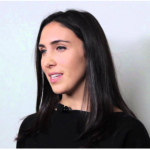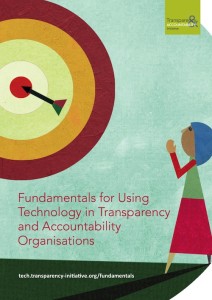Data is a Team Sport: Government Priorities and Incentives
Dirk Slater - August 13, 2017 in Data Blog, Event report
Data is a Team Sport is a series of online conversations held with data literacy practitioners in mid-2017 that explores the ever evolving data literacy eco-system.
To subscribe to the podcast series, cut and paste the following link into your podcast manager : http://feeds.soundcloud.com/users/soundcloud:users:311573348/sounds.rss or find us in the iTunes Store and Stitcher.
[soundcloud url=”https://api.soundcloud.com/tracks/337462183″ params=”color=ff5500&auto_play=false&hide_related=false&show_comments=true&show_user=true&show_reposts=false” width=”100%” height=”166″ iframe=”true” /]
The conversation in this episode focuses on the challenges of getting governments to prioritise data literacy both externally and internally, and incentives to produce open-data and features:
- Ania Calderon, Executive Director at the Open Data Charter, a collaboration between governments and organisations working to open up data based on a shared set of principles. For the past three years, she led the National Open Data Policy in Mexico, delivering a key presidential mandate. She established capacity building programs across more than 200 public institutions.
 Tamara Puhovski, a sociologist, innovator, public policy junky and an open government consultant. She describes herself as a time traveler journeying back to 19th and 20th century public policy centers and trying to bring them back to the future.
Tamara Puhovski, a sociologist, innovator, public policy junky and an open government consultant. She describes herself as a time traveler journeying back to 19th and 20th century public policy centers and trying to bring them back to the future.
Notes from the conversation:
The conversation focused on challenges they face pressuring governments to open up their data and make it available for public use. In order for governments to develop and maintain open data programmes, there needs to be an ecosystem of data literate actors that includes knowledgeable civil servants and incentivised elected officials being held to account by a critical thinking citizenry supported by smart open data advocates. Governments incentivisation for open data can’t be solely based on budgetary or monetary savings, they need to be motivated to want to use data to improve the effectiveness of their programs.
Once elected officials are elected, it’s too late to educate and motivate them enough to push for open data programmes as they have too many other priorities and pressures. They have to have a level of data literacy that will provide enough knowledge, motivation and commitment to open data before they are elected.
Making arguments for open data is not having adequate impact, but we need to be able to provide good solid stories and examples of its benefits. Those advocating for open data have perhaps been too optimistic that citizens would find the data useful once it has been released. A ‘supply and demand’ frame is still an important way to look at open data projects and assess their ability to have impact.
Access to government produced open data is critical for healthy functioning democracies, but government’s ability to release open data is heavily dependent on their own capacities to produce and work with data. There is currently not enough technical support for public officials tasked with implementing open data projects.
Resources mentioned in the conversation:
- The Google Doc on Open Data: Concerns about opening up data, and responses which have proved effective
- From the Open Data Charter and the Transparency and Accountability Initiative: Rethinking data for accountability
- A Checklist for Open Government Beginners
- From Global Integrity: Exploring How Data Can Make A Difference: A Call for Collective Action
- Doing Anti-Corruption Differently: The New ACE Research Programme at SOAS
- On the Open Knowledge International Blog: Open data quality – the next shift in open data?
- From the GovLab: Why we should care about bad data
- White Paper from the WebFoundation: A smart web for a more equal future
- Rob Davidson’s Open Data vs Post Fact Politics Presentation
Also, not mentioned, but be sure to check out Tamara’s work on Open Youth
View the full online conversation:
[youtube https://www.youtube.com/watch?v=kK8Pz4DZ06s]








 This episode features a one on one conversation with Daniela Lepiz, a Costa Rican data journalist and trainer, who is currently the Investigation Editor for CENOZO, a West African Investigative Journalism Project that aims to promote and support cross border data investigation and open data in the region. She has a masters degree in data journalism from the Rey Juan Carlos University in Madrid, Spain. Previously involved with OpenUP South Africa working with journalists to produce data driven stories. Daniela is also a trainer for the Tanzania Media Foundation and has been involved in many other projects with South African Media, La Nacion in Costa Rica and other international organisations.
This episode features a one on one conversation with Daniela Lepiz, a Costa Rican data journalist and trainer, who is currently the Investigation Editor for CENOZO, a West African Investigative Journalism Project that aims to promote and support cross border data investigation and open data in the region. She has a masters degree in data journalism from the Rey Juan Carlos University in Madrid, Spain. Previously involved with OpenUP South Africa working with journalists to produce data driven stories. Daniela is also a trainer for the Tanzania Media Foundation and has been involved in many other projects with South African Media, La Nacion in Costa Rica and other international organisations.



